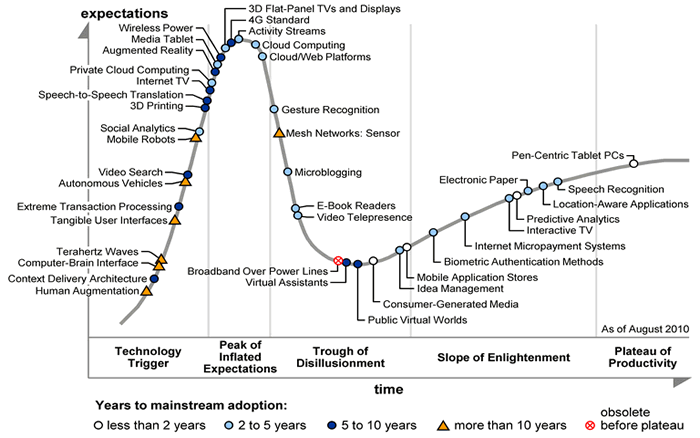When payments disappear, and value emerges

by Brett King
Ok, so if you think we’re done with the whole “when is a mobile payment a payment” argument, think again. The reality is that the biggest evolution in payments is not about Visa, Mastercard, Amex, Square or faster payments, but it is about context and simplicity, and that’s where the mobile and other technologies are leading us.
You are probably familiar with the Gartner “Hype Cycle” which has pretty accurately predicted the adoption and maturity cycle of various technologies. The Hype Cycle is pretty good at describing the hype around things like NFC and Mobile Payments generally, and how now we’re at the working end of enlightenment and productive ideation. There are a few exceptions to the Hype Cycle. Facebook, for example, is notably absent from their analysis because it has never quite emerged into trough of disillusionment phase – it got hyped and then went straight through to the enlightment stage. Theoretically you could call the IPO failure the disillisionment phase, although that wasn’t with the tech. I digress…
What history teaches about Payments?
If we look at payments history, we find that even from the earliest days of exchange and barter systems, payment methods were generally fairly simple. In Europe paper money was first introduced in Sweden in 1661, not that long ago in historical terms. The exchange of a centrally valued currency was certainly well established by the 18th Century, but at its essence it was a fairly simple value exchange.
With the advent of telephony, and then computers, the ability to send cash from one side of the world to the other emerged, but this was more complex than traditional monetary exchanges based on paper currency or barter. It required trusted parties to be involved, and that raised the complexity, but the benefit was still clear. Cheques required similar authority to be established, but the benefit of being able to send a protected payment that could only be used by the recepient was clear – the benefit outweighed the relative complexity.
continue reading »